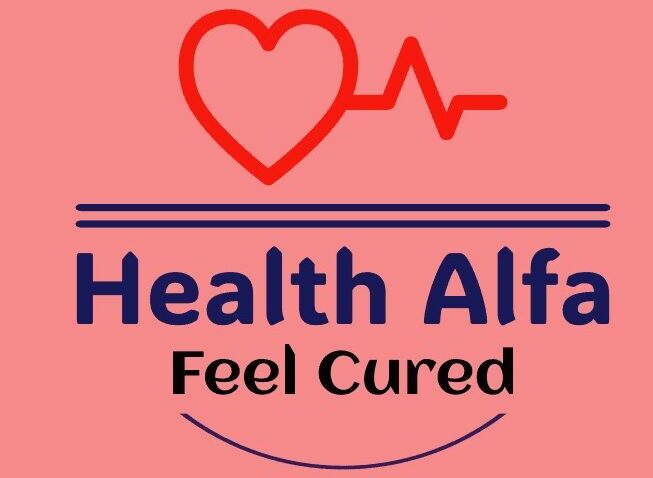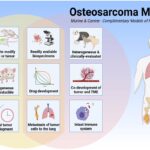
For most of people, coffee is not only part of the morning routine but is a warm, energetic drink that keeps up daily momentum. Whether it is an awesome smell wafting through the air while brewing a fresh cup or the rushing energy it gives during long working hours, It has become an integral part of many cultures worldwide. On the other hand, despite the downsides of caffeine, the benefits of this product are plentiful and well-researched. In this article, we’ll briefly consider its history, health benefits, and what makes it one of the world’s most popular drinks.
Table of Contents
The History and Culture of Coffee
As rich as the drink, history writes its rich tale surrounding coffee. Legend traces back the discovery of it to Ethiopia when a goat herder by the name of Kaldi noticed his goats suddenly being energetic after feeding on berries of a peculiar tree.
Intrigued by what could have caused their sudden energy surges, he tried the berries for himself, and thus, word of the energizing effect of this product spread throughout the region.
From Ethiopia, it went to the Arabian Peninsula and became a popular beverage in the Islamic world, primarily for its stimulating properties, which were seen as helpful for prolonged prayer sessions.
By the 15th century, it was cultivated in Yemen and exported to countries like Persia, Egypt, and the Ottoman Empire. In Europe, it arrived in the 17th century, where it gained ground.
Coffee house buildings were called “penny universities” in England-turned out to be dappled all over European maps and became a ‘hotbed’ of intellectual discussion. Today it is cultivated in over 70 countries, mostly in the tropics, and remains one of the world’s favorite drinks.
1- It energizes the body and improves mental alertness.
Perhaps the most distinctive benefit of it, even for most consumers, is how it tends to have an effect in raising levels of energy and stimulation in the mind. These effects are primarily brought about by one stimulant, that is caffeine, by works to block another inhibitory neurotransmitter in the brain – adenosine. By blocking adenosine, other neurotransmitters like dopamine and norepinephrine increase, which translates to more neuron firing and, therefore better mood, alertness, and processing of thought.

Caffeine has been proven in several researches that enhances short-term memory, reaction time, and general mental function. Indeed, a Journal of Psychopharmacology found that its consumption greatly enhanced cognitive functioning, particularly in tasks that required sustained attention. For those who are working under the most trying conditions or need to concentrate for long periods, It is quite the natural but effective way to stay on track.
2- Good Antioxidant
It is one of the highest densities of antioxidants within this new diet. Two of the compounds that were found are quinines and chlorogenic acids, which work to help the body avoid oxidative stress the primary cause of disease and aging. Even if it does have this property, studies conclude that increased antioxidant intake results from drinking it rather than from eating fruits or vegetables, putting it high on the list of health-promoting compounds in the modern diet.
They scavenge free radicals, which are unstable molecules linked to diseases, like cancer, cardiovascular disease, and neurodegenerative conditions. Part of the reason why it has been associated with lower risks of several serious diseases is because of this activity.
3- Coffee and Longevity
Evidence indicates that moderate coffee drinkers live relatively longer. A large prospective cohort study in the New England Journal of Medicine reveals daily consumption of it lowers the risk of dying from various diseases like heart disease and stroke, diabetes, and even cancer.
The researchers established that the intake of this product is linked to lower all-cause mortality, especially at three to five cups per day.
These might be due to the role it plays in combating inflammation and insulin resistance along with offering protective antioxidants. The beneficial impacts of it on various clinical markers such as liver and heart health would most likely explain the benefit described here.
4- Good Heart Health and Lesser Accidents of Cardiovascular Disorder
Whereas early concern was found circulating that coffee beverages were harmful to heart conditions due to their stimulative activity on blood pressure; more recent studies have suggested that a moderate amount of it’s consumption is protective against heart conditions. In several studies, it has been estimated that drinking three to five cups of it a day reduces cardiovascular disease, including heart attacks and strokes.
A 2013 meta-analysis of 36 studies of more than 1.2 million participants concluded that moderate coffee consumption was associated with a significant reduction in the risk of heart disease. The researchers suggested that it’s anti-inflammatory effects and improvement of endothelial function-the health of the inner lining of blood vessels most likely play a role.

Additionally, it contains magnesium and potassium; these elements play a very pivotal role in ensuring that the body may make use of insulin. As such, it ensures regulated blood sugar levels while offering overall benefits for cardiovascular health.
5- Type 2 Diabetes Risk Reduction
Another very significant health benefit of it is the potential to reduce the risk of type 2 diabetes. Dozens of studies have established a reverse relationship between it’s consumption and the risk of type 2 diabetes. One large review published in Diabetologia showed that every daily cup of it was associated with a 7% reduction in risk for type 2 diabetes.
It is speculated that the protective effect of it’s consumption on diabetes is contributed to by enhanced insulin sensitivity and lower blood sugars. Moreover, it has a high concentration of antioxidants that ensure anti-inflammatory effects and benefits against oxidative stress, the main contributor to the development of diabetes.
6- Coffee and Brain Health
It has been thought that it may have great health benefits for brain functionality and help reduce the risk of neurodegenerative diseases such as Alzheimer’s and Parkinson’s disease.
Much research postulates that the risk of developing Alzheimer’s disease decreased by up to 65% among those who drink this product, characterized by a progressive decline in memory and cognitive function. This was mainly because of the protection of mental functions and preventing damage from oxidative stress to the brain cells.
Another neurodegenerative condition threatened by it’s consumption is Parkinson’s disease. Research indicates that the protection here is due to caffeine, as it has been shown to enhance dopamine neuron function in the brain neurons that Parkinson’s patients suffer from damage to.
7- Physiology Performance enhancement
Other than that, as many athletes know, caffeine is also known as a performance-enhancing substance, and this is the reason why it has gained so much popularity. Caffeine promotes endurance by increasing the adrenaline level and releasing the fatty acids from the tissue of fat. Easy fat burn in muscles leads to an improvement in endurance performance. This is especially useful during endurance activities, such as running or cycling.
In a Journal of Applied Physiology study, caffeine improved performance by enhancing the strength and endurance of well-trained athletes. Thus, taking coffee before exercise may provide people with a sizeable amount of energy boost that helps them perform their exercises at a much higher intensity.
8- Effects on Liver Health and Protection Against Liver Diseases
The liver performs various important functions: detoxification and protein production, adjusting chemical levels in the blood. It is said that it confers great protection to the liver, and epidemiologic studies have indicated a reduced incidence of diseases such as cirrhosis, NAFLD, and liver cancer among heavy consumers of this product.
Recently, a published study in the journal Hepatology 2014 disclosed that patients who take four or more cups of this product every day have a reduced risk of up to 80% when they are diagnosed with cirrhosis, mainly alcoholic cirrhosis. In addition, scientific research has established the fact that people who consume coffee are less likely to develop liver cancer, one of the most common causes of cancer death worldwide.
9- Psychosocial Benefits
Besides its effects on the cognitive level, coffee has also been linked to a decreased risk of depression and better mental well-being. Several large studies have established the fact that moderate consumption can decrease the risk of developing depression and anxiety symptoms.
A study in the Archives of Internal Medicine found that, compared with non-coffee drinkers, women who consumed two to three cups of this daily showed a 15% reduced risk of experiencing depression.
The psychoactivating properties of this product would probably be fundamentally linked to its interaction with dopamine and serotonin levels: neurotransmitters that are significant in the regulation of mood states. Additionally, its role in reducing the inflammatory and oxidative stress profile probably contributes to its protective effects against mood disorders.
10- Coffee and Weight Management
Aside from the evidence of physical performance improvement, there are now many proofs for the fact that it also helps in weight management. Caffeine is one of the few, if not the only, natural compounds that enhance fat burning thereby furthering weight loss. It does so in several mechanisms including a boost in metabolism and promotion of fat oxidation. Research proved that caffeine increases metabolic rate in the range of 3-11%, and due to this, the body burns more calories even when resting.

It would also suppress the appetite, therefore controlling what and how much to consume. Some studies have shown that individuals who consume caffeine have lower calorie intakes. So it may have at least some partial relationship with weight loss or maintenance. The green coffee bean extract is largely found in the weight-loss supplement space because of its high chlorogenic acid content said to decrease fat absorption and better glucose metabolism.
11- Coffee and Intestinal Health
Another area through which it’s benefits are fairly recognizable is its effect on the digestive system. It increases the production of stomach acid in individuals, which increases the chances of digestion, especially for people consuming high-protein diets.
However, this increased stomach acid can be disturbing for some individuals and may even worsen conditions such as acid reflux. So one needs to pay attention to his body and consume it only when needed if one has issues related to digestion.
Of enormous interest is the fact that studies have also shown that positive impacts on the gut microbiome are effects of it’s consumption. This denotes an enormous community of trillions of microorganisms residing within the digestive tract and exerting crucial effects on one’s health:
from immune functions to mental well-being. From this research, It is hinted to be associated with increased levels of beneficial bacteria in the gut, improving gut health. This means there is a potential role in preventing gastrointestinal diseases through better digestion by consuming of this product.
12- Socialization and Community Building
On the physiological level, it is evident that it interacts with people’s lives even as socialization and community building have been associated with it for centuries. The place where one debates an idea and converses is known as a coffeehouse.
Today, socialization is still attached to this drink either by moving hand in hand with friends over a cup of coffee or becoming part of coffee meetups. One can take some coffee breaks within work hours.
The coffee culture represents an important part of community life since social relationships can positively affect mental well-being; such relationships are a sign of emotional health and general happiness.
In many societies, drinking this product is a ritual and a means of building relationships. Take, for example, the Italians, whose view of it is not merely how to get something fast but rather to slow up their busy lives. It is in the company of friends or family. In part, the pleasure of company among those consuming it leads to lower degrees of stress and feelings of belonging.
13- Coffee: A Source of Essential Nutrients
Although, in the daily lives of most individuals, it is not a source of nutrition, the beverage is still full of a wonderful mix of essential nutrients. A cup of this drink also contains a small amount of several vitamins and minerals, including but not limited to:
Vitamin B2 (riboflavin): Appears to play a role in cellular metabolism and energy production.
Vitamin B5 (Pantothenic acid) another name for vitamin B5, is an essential element in the breakdown of proteins, lipids, and carbohydrates.
Manganese and Potassium: These minerals contribute to maintaining a functioning cellular aspect and overall heart health.
Although these nutrients are not at especially high levels in one cup, someone drinking several cups a day easily could make up for their daily quota. Furthermore, the overall net effects of these nutrients, in conjunction with it’s likely antioxidants, have a subtly positive but important overall health impact over time.
14- Coffee and Creativity
Although it has several physical and cognitive benefits, it is even closely linked with creativity and inspiration. Coffee houses have served for centuries in history as a type of sanctuary or community center for artists, writers, and intellectuals to convene. In a creative professional’s life, for example, coffee is an essential staple daily, not only as a way to keep one focused but to be able to easily think without restrictions. The stimulating nature of caffeine with the ritual of sipping coffee can provide an encouraging environment to brainstorm ideas, solve problems, and strive to come up with something new.

Research on the brain that concerns caffeine shows that it does not have a direct effect on creative thinking, but mood and cognitive functions are boosted, thus this is the reason why a person enhances the likelihood of having such creative breakthroughs. Whether it be an atmosphere within a coffee shop or a daily ritual to an individual’s morning routine to brew that morning cup, coffee often appears to stimulate the inspiration and productivity needed.
15- Coffee and Cancer Risk Prevention
Recent research studies have also suggested that coffee can serve to help prevent the risk of some cancers. For instance, there is research that shows a regular intake of coffee may result in lowering the risk of cancers of the liver and colorectal.
The antioxidants together with the bioactive compounds in coffee, including polyphenols, might probably protect against DNA damage by reducing inflammation, as well as preventing the spread of cancer cells.
A review published in the British Medical Journal reported a connection between moderate consumption of coffee with three to four cups of reduced risks of liver, endometrial, and prostate cancers. Moreover, the protective effects of coffee on the liver, as discussed above, make it unlikely to develop into liver cancer, which is frequently induced by cirrhosis and hepatitis.
16- Coffee and Sustainability
Among the flows that are very visible within the recent past, especially in the last two years, would be environmental awareness about coffee production. More effort has been made to make the coffee industry more sustainable and green.
From the perspective of consumers, buying sustainably sourced coffee is one way in which they can influence ethical labor practices in farming and environmentally friendly farming techniques. That is why Fair Trade and Rainforest Alliance along with other certifications guarantee that the coffee is produced responsibly and helps the farmers while conserving the environment.
Other sustainable coffee practices include shade-grown coffee-which would protect the biodiversity habitat of the wild by allowing it to live there together with composting coffee, reusing cups, and roasting coffee by local roasters that minimize waste and promote a more sustainable coffee culture.
17- Coffee as an Anti-Pain Trigger
While it has its beneficial effects on mental alertness, coffee can help alleviate certain kinds of pain as well as act as a weak analgesic. Caffeine has also been found to support over-the-counter pain medication, such as ibuprofen and acetaminophen, in boosting their efficacy among patients experiencing headaches or migraine attacks. Consequently, some preparations for the latter are prescribed with caffeine added as an active component.
For those who suffer from chronic headaches or pain from tension, moderate intake of coffee may reduce the pain. It is also worth noting that excessive consumption of coffee also leads to “rebound headaches” caused by withdrawal from caffeine.
How to Enjoy Coffee Benefits in Moderation
While coffee lends itself to myriad benefits, there is a strong need to consume it within reasonable limits, as excessive consumption will lead to nasty side effects, such as shakiness, insomnia, digestive upset, and an increased heart rate. Health experts usually recommend a maximum intake of three to five cups of coffee a day to reduce the risk side of coffee intake. It is also important to take note of the fact that every individual’s threshold is different, and one should see a doctor if one has other conditions in the first place, like a heart problem or acid reflux.
A Drink for Good Health
Coffee is far beyond a cup of caffeine to perk the individual up; coffee has become a drink associated with a lot of health and cultural benefits and a history of emotional connections. Ranging from improved mental awareness to preventing chronic diseases to social opportunities that tend to encourage creativity, coffee performs a multifaceted role in modern life. The capacity by which coffee can serve physical, mental, and social benefits makes millions of people drink it daily.

Whether it is an early morning shot of espresso, or finishing a paper with some colleagues’ stimulating conversation over a cup of latte, coffee does have this uncanny ability to make life a more fulfilled experience, day by day.
Conclusion
Conclusion Overall, aside from being the popular pick-me-up drink, coffee has a wide scope of potential health benefits that can increase the level of well-being. Studies identified many positive health effects of moderate consumption of coffee. For example, it has been indicated in studies that high consumption levels may reduce the risk of developing type 2 diabetes.
Also, heart conditions may be positively affected by the consumption of this very popular drink. Most astonishingly, the likelihood of other cancers could also be reduced. The awareness of the health benefits of coffee that may be obtained from a cup of it will lead people to consume coffee with more mindfulness as part of their daily routine.
A particularly relevant point is the black coffee benefits- Black coffee is very low in calories and contains loads of antioxidants, making it a pretty healthy option for those who do not mind coffee without added sugars or fats.
Some of these factors have been linked with higher metabolism and appropriate weight, so there are contributing points to the debate about coffee and weight loss. Some studies claim that it may increase fat burning in combination with diet and exercise, further aiding weight loss.
However, to make it safer, there should be guidelines for how much coffee is safe to drink to a person. In this regard, it is meant to cap caffeine from all sources to approximately 400 milligrams per day for most adults. This should translate to about four 8-ounce cups of brewed coffee.
Pregnant women and those with specific medical conditions should consult their healthcare providers regarding their consumption levels. These restrictions help people appreciate the various benefits of coffee while minimizing possible dangers.

Everybody says praise coffee for that energy lift, and the health benefits of this beverage are much further than the mere quick acceleration of alertness. It enhances brain function and reduces the incidence of certain chronic diseases, and many other benefits are attributed to it if taken in moderation. Whether because of taste, stimulating effects, or health-promoting properties, coffee is a good addition to a healthy lifestyle.
Disclaimer
In this article, information related to a particular topic has been collected from various sources, the purpose of which, is only to increase the knowledge of the readers and it does not confirm the existence of any disease, particular statement, explanation, appropriateness, congruity, and information or any kind of treatment. Health Alpha does not take any responsibility for any such information.
Views: 10












Why choose double glazed windows in Melbourne
window replacement cost http://bestnosefiller.com/replacement-melbourne/ .
Top Lineage 2 servers to play on
Lineage 2 X7 http://www.cryptoexlicense.com/rates/lineage-2-x7 .